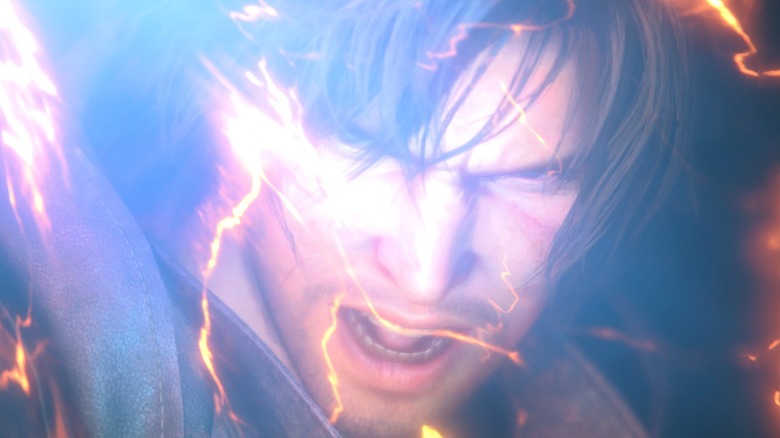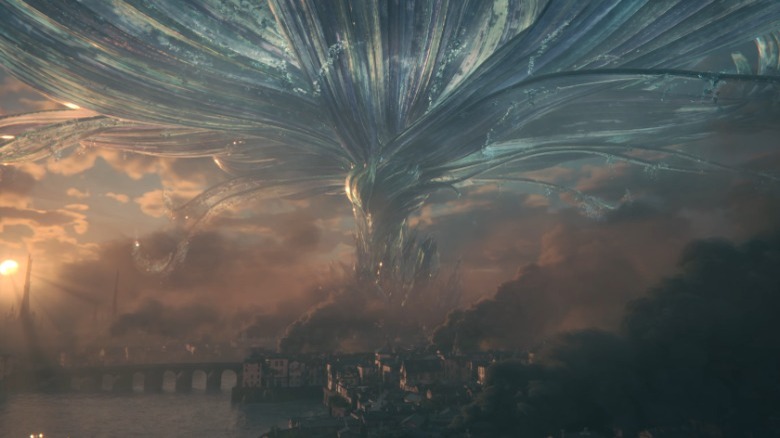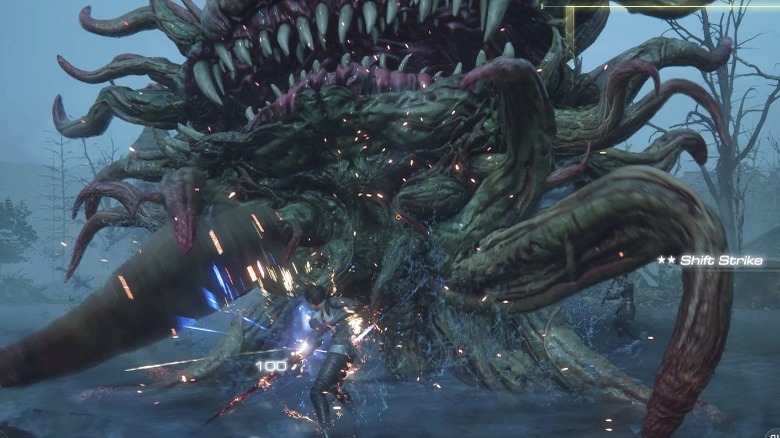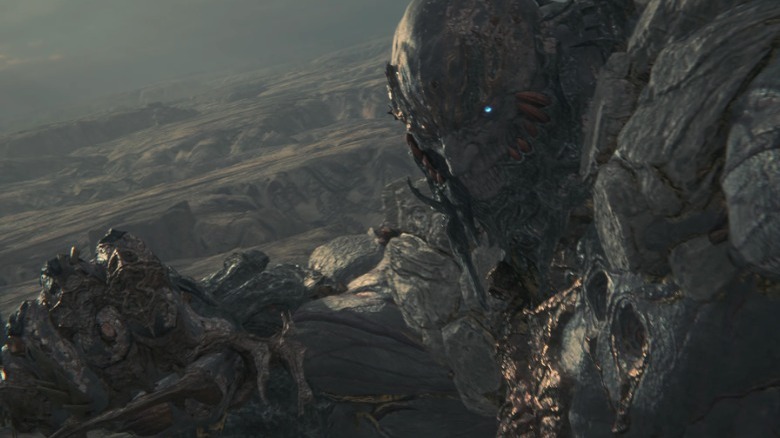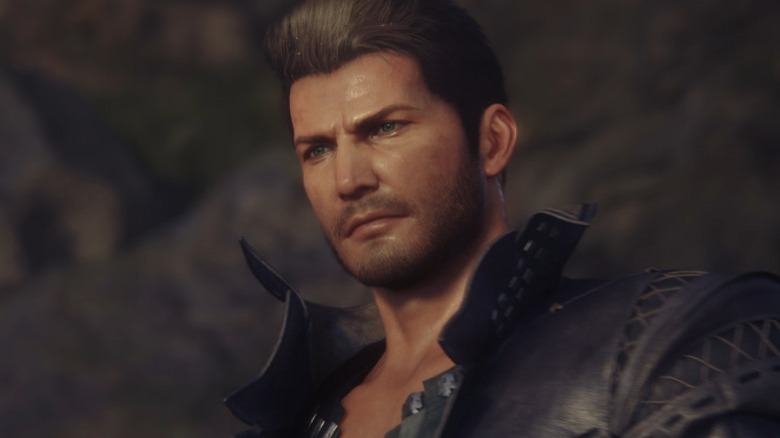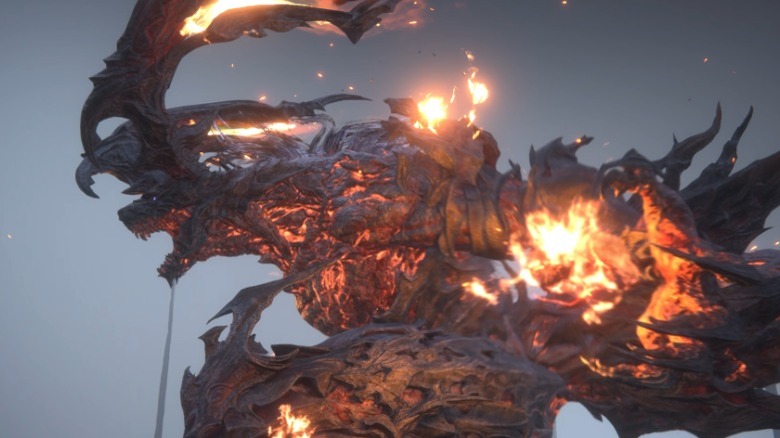Final Fantasy 16 Review: A Masterclass In Action RPGs
- Merges fast-paced action combat with classic RPG elements, providing an engaging and refreshing gameplay experience for newcomers and longtime fans alike
- Offers an immersive and epic narrative with well-developed characters and intricate world-building
- Boss battles are some of the game's most unforgettable moments
- Pacing of the game can feel uneven
- The shift from the franchise's traditional turn-based combat system to a more action-oriented style may not resonate with all fans
A PS5 review code for "Final Fantasy XVI" was provided to SVG for this review. The game is available now exclusively on PS5, and will launch at a later date for PC.
"Final Fantasy XVI," the latest installment in the long-standing franchise by Square Enix, brings an evolution to the character action genre — not to mention the series itself. It masterfully merges fast, flexible, and stylish combat that demands quick reflexes, with the classic RPG elements that are synonymous with the franchise. For anyone, not deeply entrenched in the "Final Fantasy" lore, this innovative blend creates a uniquely refreshing gameplay experience that doesn't feel exclusionary to newcomers. And though purists may turn up their noses to the game's direction, there's still a lot to love for longtime fans of the series.
The epic and immersive story in "Final Fantasy XVI," which unfolds well over 70-plus hours of completionist playtime, serves up a rich feast of complex characters, intricate world-building, and spectacular set pieces that will captivate you from start to finish.
Every character in "Final Fantasy XVI" comes with a well-defined personality and backstory. The game takes the time to delve into their motivations, fears, and aspirations, making them all the more relatable. The protagonist, Clive Rosfield, stands out as a testament to this, with his journey and transformation being a constant source of intrigue. But it isn't just the protagonist who shines. Each member of the diverse cast is finely fleshed out, contributing to the narrative's depth and emotional impact.
A grandiose, beautiful world
The world-building in "Final Fantasy XVI" is yet another aspect where the game truly excels. It crafts a sprawling fantasy world — known as Valisthea — filled with varied landscapes, from towering cities and quiet rural towns to dark dungeons and vast wildernesses. Each area is meticulously designed and visually stunning, complementing the story with its atmosphere and aesthetics. The lore of the land, its history, its kingdoms' cultures, and conflicts, are woven seamlessly into the narrative, providing a rich backdrop against which the events of the game unfold.
Adding to the game's narrative prowess are its moments of spectacle. These come in various forms, be it through visually stunning cutscenes, nail-biting boss battles, or unexpected twists. Every major event feels grand and impactful, often leaving players at the edge of their seats. These moments of spectacle are carefully timed to punctuate the narrative, enhancing the sense of drama and keeping the plot's momentum going, even with its slower moments.
On that note, ultimately, the game's pacing is arguably a matter of personal preference, and while it may deter some, it could be a boon for others. It's a clear testament to the game's commitment to delivering a rich, story-driven experience that isn't afraid to slow things down in service of its narrative.
Action-packed and rewarding combat
Combat in "Final Fantasy XVI" is a spectacle. It's action-packed, reflex-driven, and rewards skillful play with opportunities for spectacular combos, counters, and powerful attacks. The game marks a clear departure from the traditional turn-based combat that the franchise is known for, opting instead for a more action-oriented combat system. Feeling like somewhat of a reset, this change brings a fresh and dynamic approach to the gameplay. However, it may not sit well with every fan, particularly those who favor the series' traditional turn-based system.
After all, that style of combat has always been a core element of the "Final Fantasy" experience. It was not merely a gameplay mechanic, but an integral part of the franchise's identity, infusing strategic depth and pacing into the combat scenarios. The time players had to choose their actions in the turn-based system allowed for a more strategic, thoughtful approach to combat that could be both intense and cerebral.
With the shift to an action-based combat system in "Final Fantasy XVI", battles are now more reflexive and fast-paced. And although this new system has its merits, providing exhilarating, real-time action and a sense of immediate danger, it also requires a different skillset, favoring quick reflexes and real-time decision-making over slower, more deliberate strategy.
Some players might find this shift refreshing, enjoying the adrenaline rush of immediate action and the satisfaction of landing a well-timed strike. For them, the change might be a welcome evolution, bringing the franchise in line with modern action RPGs, which speaks to the game's ability to welcome newcomers to the series.
However, players who relish the strategic planning and deliberate pacing of traditional turn-based combat might find the new system less satisfying. If you happen to fall into that category, you may miss the unique charm and identity that was ushered in by the turn-based systems in the classic "Final Fantasy" games.
Bosses take center stage
Regardless of where you stand on the combat system in "Final Fantasy XVI," one thing is for sure: The game's bosses are out of this world.
Known as Eikons and Dominants, these bosses represent some of the most formidable adversaries that the player will face throughout their journey — and, ultimately, some of the most unforgettable moments of the game (we're especially looking at you, Titan Lost). These entities are imposing, not just in their strength and abilities, but also in their design and visual presentation. Each Eikon and Dominant exudes a unique aura, coupled with meticulously designed visual elements that reflect their unique attributes and lore. This level of detail in the design of these adversaries enhances their presence and makes each encounter feel distinct and memorable.
Each boss comes with its own unique set of moves and abilities. Without spoiling anything, each encounter requires you to adapt your strategy and react accordingly. The use of these abilities in the heat of battle creates a dynamic and ever-evolving combat scenario, challenging you to make the most of your own abilities and tactics.
These confrontations offer breathtaking moments of scale, both in the literal sense and in the context of the narrative. You'll find yourself face-to-face with colossal foes, the sheer size and power of which bring a jaw-dropping sense of scale to these encounters (a la "God of War 3" or "Shadow of the Colossus"). Additionally, these battles often serve as key turning points in the game's narrative, adding weight to your actions and their outcomes.
Nitpicky hiccups that definitely don't make or break the game
While "Final Fantasy XVI" offers plenty of impressive features, one area where it slightly falls short is in its enemy variety. The game tends to reuse the same types of enemies within its open fields and linear dungeons. The recurrence of familiar foes might not be an issue in moderation, but when encountered in abundance, it can lead to a sense of repetition and predictability. Each encounter, rather than offering a new challenge or requiring a fresh strategy, eventually starts to feel like a rehash of a previous battle. As a result, traversing through the game's otherwise beautifully crafted environments might become less exciting over time.
In addition to this, there's a slight limitation in the variety of basic fights. "Final Fantasy XVI" introduces an array of new fantastical abilities throughout the game, adding layers of complexity and depth to its combat system. However, despite these introductions, the core structure of basic battles doesn't evolve much beyond the initial offerings. The moment-to-moment engagements with lesser foes remain largely unchanged, even as you progress and unlock new capabilities.
The RPG elements can also feel a bit half-baked at times. Loot often feels like an afterthought, character customization is limited, and although the side quests are enjoyable, overall exploration lacks enough incentives to provide a ton of satisfaction if you tend to be a bit more curious in your exploring.
All of that said, given the sheer size and scope of the game, these issues are more nitpicky than anything. They don't necessarily take away from the overall experience.
A new GOTY contender approaches
In terms of replayability, the lack of substantial changes to combat and RPG mechanics may limit the game's long-term appeal (unless you're already planning on replaying the game when it releases on PC). But given everything else the game provides in the initial playthrough, it's more than enough to leave you satisfied — and already salivating for "Final Fantasy XVII."
"Final Fantasy XVI" undeniably muscles its way into the conversation for Game of the Year. Its strong story, memorable characters, and evolved combat mechanics make it a top contender. It's not without its drawbacks, but it's hard to deny the impact this game has already had.
Overall, "Final Fantasy XVI" emerges as a highly appealing experience for both new players and series veterans. Its successful blending of fast-paced action with classic RPG elements, coupled with an engaging story and awe-inspiring encounters, firmly places it as a standout title in the "Final Fantasy" series. Despite any shortcomings it may have, it's a grand adventure that's well worth embarking on.

